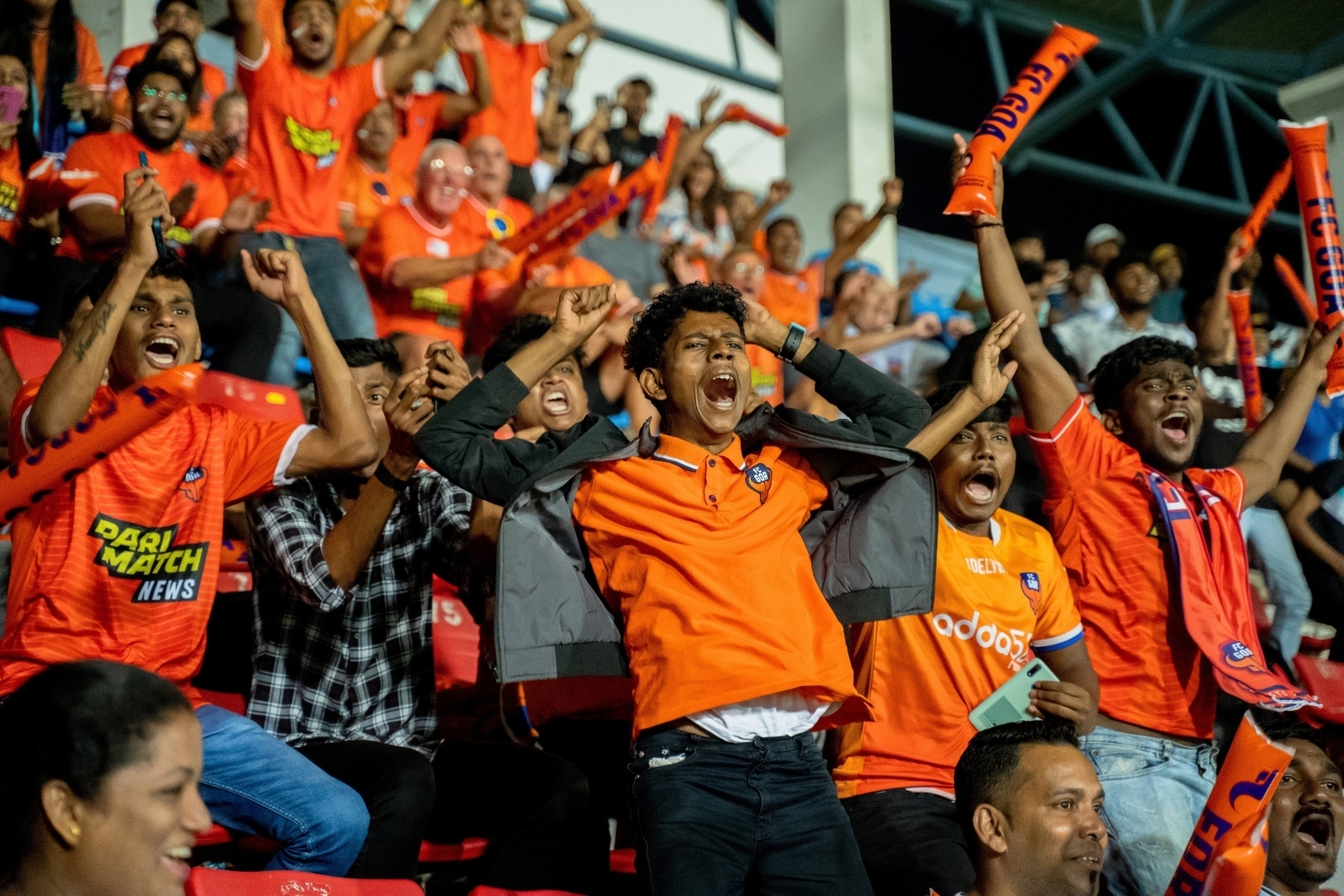Two popular aspects of Goan life, football and tiatr, both getting enhanced financial support, and yet wilting or coming under pressure?

The other day, a stray comment in cyberspace raised a string of unusual issues. Prominent musician, O'luv, commented: "There is no Goaness left in [some of Goan football's top clubs] anymore. The Goan soul left FC Goa a few years ago. Pleading to the people of Goa to come to the stadium will not help."
Why this criticism against Goa's top football club, especially when its sponsors are spending crores over it each year? (one estimate put it at Rs 25-30 crore a year.)
What's going wrong, and where? Regular sports fans, and even those covering the field, talk about a decline in attendance. We need to sit up and take note of reports that football crowds are sharply declining. It has been pointed out that a stadium with a capacity of 19,000 struggles to find five to seven thousand fans watching a game. Some matches did not even get 200 spectators when entry was free. Big names in Goan football are losing their fan base?
To start with, this is an issue over which there is no unanimity. A sports editor of a local daily commented, "Crowds in Goa have been staying away for a long time. I've seen more policemen than spectators at Fatorda!"
Some pointers focus on declining Goan teams in the top tiers of Indian football, the lack of Goan players in Indian football teams, diminishing fans at local matches, poor showing by Goan teams outside Goa, Goan teams withdrawing from national competition, the declining earnings of Goan footballers, the withering away of inter-ward and village football, and the like.
A senior journalist, who has worked long in the field of sports, noted the withering away of the "nurseries of Goan footballers" -- school and college football.
He commented: "Neglect of sports and football in particular in schools and colleges was the first nail driven into Goan football's coffin. Some 15-20 years ago, I also noticed ominous signs for Goan football. On any given day, there were more groups of kid playing tennis-ball cricket rather than football in post harvest paddy fields across several villages! Draw your own conclusions."
Plus, in his view, the "blind replication [in India] of the financial model of Western leagues only added fuel to the fire that was already burning down Goan football."
Other questions might come to mind too: how is it that just when Goan football got its biggest infusion of big money -- including from the casinos -- it appears to have reached its nadir?
The other debate emerging in the last fortnight was related to the Tiatr Academy of Goa. The government funds the TAG. It also decides who heads this body. Earlier, individuals closely connected with this popular form of Konkani theatre were involved; but not quite so now.
Anthony Barbosa took over as the President of the Tiatr Academy of Goa recently, after being nominated to the post by Goa's BJP government. Some tiatrists and those actually working in the field were up in arms about the appointment, while others also felt upset but chose not to enter the controversy.
On a tiatrist network, there were questions asked to the new president. Over when he first saw a tiatr, how many tiatrs he has seen, which was the last one he saw, and what was his contribution to the Konkani stage. Here, the suggestion was that political appointments might not work in the interest of culture.
So, what's common between football and the tiatr today? Two popular aspects of Goan life, both getting enhanced financial support, and yet wilting or coming under pressure?
In the case of the tiatr, there is another angle involved. As the late researcher Dr Pramod Kale has pointed out, the tiatr echoes the hopes and aspirations of the average Goan (Catholic). As long as tiatrists have the space for free-speech, including being sharply critical of controversial politicians, they have a better chance of retaining the loyalty of their audiences. What if the money comes in but freedom is blocked? Of course, there is no such thing as a free meal.
After decades of 'development', Goa is waking up to the reality that our fields are increasingly going barren, our fish resources are being decimated, our younger generation is depleted and struggling to find jobs. And just pumping in money is not solving our problems.
Money, sponsorship, even government patronage, can be like the camel entering the tent. If we find sport after sport doing so poorly in our state -- except for a few like chess -- then part of the blame surely must go to our attitude that money-can-solve-our-problem.
In addition, there has also been the politicisation of sports, with those at the helm of most sporting bodies reading like a who's-who list of past and present politicians. Sadly, many 'beneficiaries' believe that such developments are in the interest of the sport; having good godfathers could surely help. But is that so?
Even religious bodies are eager to accept funding, and have controversial politicians as chief guests. Politicians, meanwhile, say this is only expected of them, and hence they sponsor such functions.
A look back at the past shows how such Goan achievements were built. Not through short-cuts and easy routes, but by decades of hard work, networking and crowd-funding.
The phrase “beware of Greeks bearing gifts” is a warning to beware of the hidden impacts of "gifts". It comes from the Trojan War, when the Greeks left a giant wooden horse filled with soldiers as a gift to the Trojans. The Trojans brought the horse inside the city, and the Greek soldiers emerged to open the gates and let in the opposing, Greek army. The phrase is based on the words of Laocoön, a Trojan priest who warned the Trojans to not accept the horse. So, can we recognise the price we have to pay?